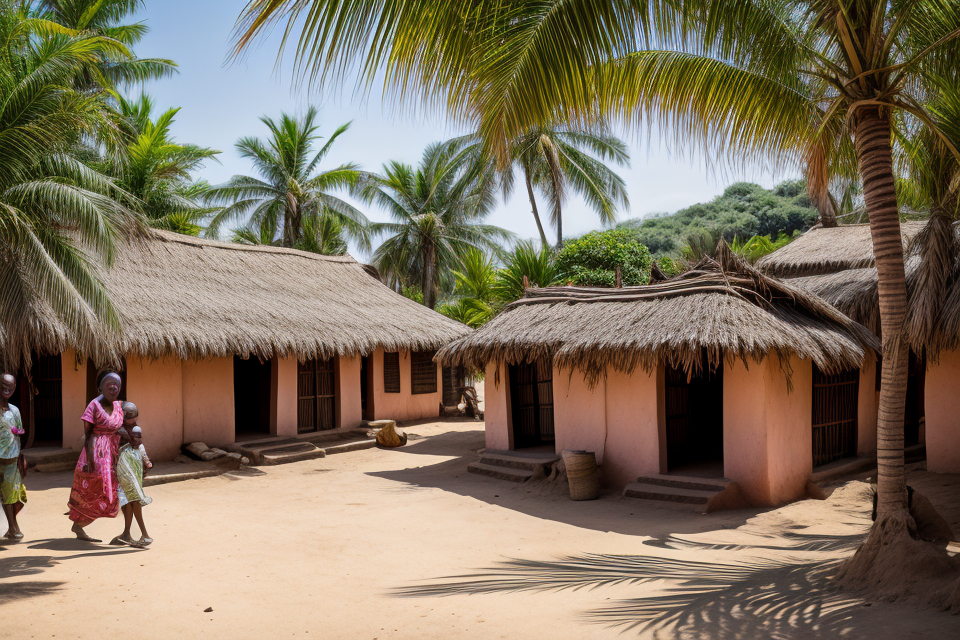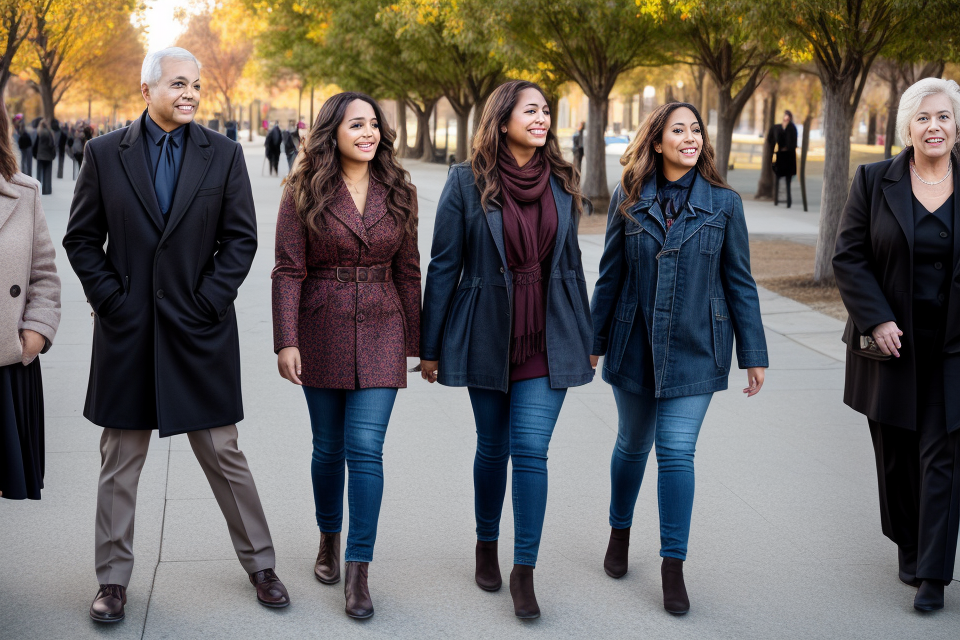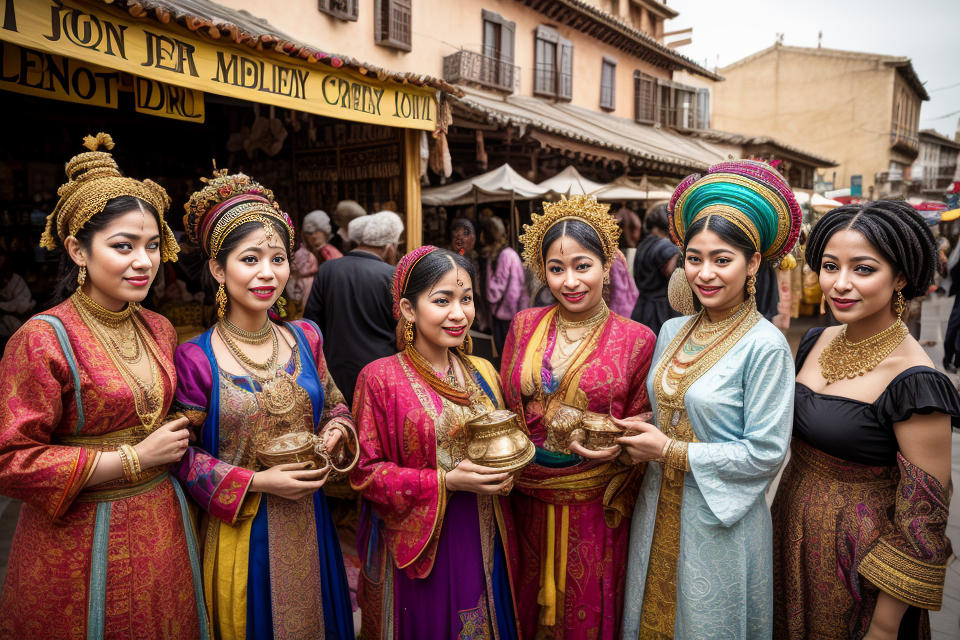What are Cultural Values?
Definition and Importance
Cultural values refer to the beliefs, attitudes, and practices that are considered important or desirable within a particular society or culture. These values shape the way individuals think, behave, and interact with one another, and they can vary significantly across different societies and time periods.
It is important to understand cultural values because they can have a significant impact on individuals and communities. For example, values related to social hierarchy or gender roles can shape the opportunities and experiences available to different individuals within a society. Understanding cultural values can also help us appreciate the diversity of human experience and foster greater empathy and understanding across cultures. Additionally, recognizing the ways in which cultural values can change over time can provide insight into the dynamics of social and political change.
Traditional Societies and Their Cultural Values
Characteristics of Traditional Societies
Description of Traditional Societies
Traditional societies are often characterized by their adherence to customs, beliefs, and practices that have been passed down from generation to generation. These societies typically exist in rural or remote areas, and are often isolated from modern influences. They may also be characterized by a strong sense of community and a shared identity.
Explanation of Characteristics that Define Traditional Societies
- Low level of technological development: Traditional societies tend to have a low level of technological development, relying on traditional methods of production and subsistence. This can include farming, hunting, and gathering.
- Emphasis on social hierarchy: Traditional societies often have a clear social hierarchy, with distinct roles and responsibilities for different members of the community. This can include the division of labor, the distribution of resources, and the allocation of power.
- Strong sense of community: Traditional societies often place a strong emphasis on community and the collective good. This can include shared beliefs, values, and customs, as well as a sense of responsibility for one another.
- Adherence to traditional beliefs and practices: Traditional societies often have a strong attachment to traditional beliefs and practices, which may be seen as an important part of their identity. This can include religious or spiritual beliefs, as well as customs related to birth, marriage, and death.
- Limited exposure to outside influences: Traditional societies may be isolated from modern influences, such as media, technology, and globalization. This can result in a limited exposure to outside ideas and values, and a stronger emphasis on traditional beliefs and practices.
Cultural Values in Traditional Societies
In traditional societies, cultural values are the core beliefs and principles that shape the way of life for individuals within the community. These values are passed down from generation to generation and serve as a guide for how individuals should behave and interact with one another.
Examples of cultural values in different traditional societies include:
- Harmony: In Chinese culture, the value of harmony is highly prized. This value emphasizes the importance of maintaining balance and unity within the community, and encourages individuals to work together towards a common goal.
- Respect for Elders: In many African societies, the value of respect for elders is deeply ingrained. This value emphasizes the importance of showing respect and deference to older members of the community, and is seen as a way of maintaining social order and stability.
- Community: In many indigenous societies, the value of community is highly valued. This value emphasizes the importance of working together and looking out for one another, and is seen as a way of ensuring the well-being and survival of the community as a whole.
- Humility: In many Middle Eastern societies, the value of humility is highly prized. This value emphasizes the importance of modesty and humility, and encourages individuals to put the needs of others before their own.
- Environmental Stewardship: In many Native American societies, the value of environmental stewardship is deeply ingrained. This value emphasizes the importance of protecting and preserving the natural world, and is seen as a way of ensuring the well-being of future generations.
These are just a few examples of the many cultural values that can be found in traditional societies around the world. By understanding these values, we can gain a deeper appreciation for the diversity and richness of human culture, and learn from the wisdom and knowledge of our ancestors.
Cultural Values in Indigenous Societies
Indigenous Societies and Their Cultural Values
Indigenous societies are communities that have lived in their traditional territories for generations and have developed unique cultural practices and values that are specific to their environment and way of life. These societies often have a deep connection to the land, natural resources, and spiritual beliefs that shape their worldview and identity.
One of the defining characteristics of indigenous societies is their strong sense of community and interconnectedness. In many indigenous cultures, there is a collective responsibility to take care of the land and natural resources, and the well-being of the community is seen as interconnected with the health of the environment. This value is often reflected in traditional practices such as hunting and gathering, where individuals work together to ensure that resources are used sustainably and without waste.
Another important cultural value in many indigenous societies is the importance of storytelling and oral tradition. Stories are passed down from generation to generation and serve as a way to transmit cultural knowledge, history, and values. These stories often include moral lessons and teachings about the importance of respect for the environment, community, and ancestors.
Indigenous societies also place a strong emphasis on spiritual beliefs and practices, which are often deeply connected to the natural world. Many indigenous cultures have complex systems of beliefs and rituals that are designed to honor and connect with the spirits of the land, animals, and natural phenomena. These beliefs and practices often involve a deep respect for the interconnectedness of all living things and a recognition of the importance of balance and harmony in the environment.
In addition to these core cultural values, indigenous societies often have unique practices and customs that are specific to their community and environment. For example, some indigenous societies have elaborate ceremonies and dances that are performed during special times of the year, while others have complex systems of governance and decision-making that are based on consensus and collaboration.
Overall, the cultural values of indigenous societies reflect a deep connection to the land, natural resources, and spiritual beliefs that shape their worldview and identity. These values often emphasize community, interconnectedness, and respect for the environment, and are reflected in traditional practices and customs that have been passed down for generations.
Impact of Colonization on Indigenous Cultural Values
Colonization refers to the process by which a more powerful group, typically a nation-state, establishes control over a territory and its inhabitants. In the case of indigenous societies, colonization often involved the forced displacement of people from their ancestral lands, the imposition of foreign languages and religions, and the erosion of traditional practices and beliefs.
The impact of colonization on indigenous cultural values was profound and far-reaching. Many indigenous cultures were forcibly assimilated into the dominant culture, resulting in the loss of language, customs, and traditions. For example, in North America, the forced relocation of Native American populations from their ancestral lands to reservations often resulted in the loss of language and cultural practices. Similarly, in Australia, the forced removal of Aboriginal children from their families as part of the government’s “Stolen Generations” policy resulted in the loss of language and cultural knowledge.
Colonization also led to the commodification of indigenous cultural values, with foreign powers exploiting and profiting from indigenous resources and knowledge. For example, in Africa, the exploitation of natural resources such as diamonds and oil often resulted in the displacement of indigenous communities and the destruction of their traditional way of life.
Overall, the impact of colonization on indigenous cultural values was devastating, resulting in the loss of language, customs, and traditions, as well as the exploitation and commodification of indigenous knowledge and resources. Despite this, many indigenous communities have been able to maintain and preserve their cultural values, providing a vital link to their past and a source of strength and resilience for the future.
Cultural Values in Rural Societies
Rural Societies and Their Cultural Values
Description of rural societies
Rural societies are typically characterized by close-knit communities where people rely on each other for support and assistance. These communities are often isolated from urban centers and have a strong connection to the land and its resources. In many rural societies, traditional ways of life are still valued and practiced, and there is a strong sense of cultural identity.
Explanation of cultural values in rural societies
Cultural values in rural societies are often rooted in tradition and history. These values can include a strong sense of community, respect for elders, and a deep connection to the land and its resources. Rural societies may also place a high value on self-sufficiency, hard work, and independence.
Examples of cultural values in different rural societies
In many rural societies, there is a strong emphasis on family and community. For example, in some African villages, the extended family is highly valued, and everyone works together to support each other. In some rural areas of Asia, there is a strong emphasis on respect for elders and a deep connection to the land and its resources. In some European rural communities, there is a strong sense of pride in traditional crafts and trades, such as blacksmithing or weaving.
Overall, cultural values in rural societies can vary widely depending on the specific community and its history. However, there is often a strong emphasis on tradition, community, and a deep connection to the land and its resources.
Challenges to Cultural Values in Rural Societies
- Loss of Traditional Livelihoods: One of the primary challenges faced by rural societies is the loss of traditional livelihoods due to urbanization, industrialization, and globalization. This has led to a decline in the practice of traditional occupations, resulting in a decline in cultural values associated with those occupations.
- Influence of Western Culture: The influence of Western culture has led to the erosion of traditional cultural values in rural societies. The spread of Western media, education, and lifestyles has led to a decline in the practice of traditional customs and beliefs.
- Migration: Migration from rural areas to urban areas has resulted in a decline in the population of rural societies, leading to a decline in the transmission of cultural values from one generation to another. Additionally, the cultural values of migrants may differ from those of the rural society they leave behind, leading to a dilution of cultural values.
- Globalization: Globalization has resulted in the homogenization of cultures, leading to a decline in the uniqueness of traditional cultural values. Additionally, globalization has led to the promotion of consumerism, resulting in a decline in the importance of traditional values that promote frugality and self-sufficiency.
- Political and Economic Changes: Political and economic changes have also had an impact on cultural values in rural societies. For example, the privatization of resources has resulted in the commodification of traditional knowledge, leading to a decline in the importance of traditional practices that promote sustainability and environmental stewardship.
Overall, these challenges have led to a decline in the transmission and practice of traditional cultural values in rural societies, resulting in a loss of cultural diversity and a homogenization of cultures.
Cultural Values in Urban Societies
Urban Societies and Their Cultural Values
Description of Urban Societies
Urban societies are characterized by the concentration of population in cities and the associated social, economic, and cultural interactions that arise from this concentration. These societies are typically diverse, with individuals from different backgrounds and cultures coming together to form a complex and dynamic community.
Explanation of Cultural Values in Urban Societies
Cultural values in urban societies are the shared beliefs, attitudes, and practices that shape the behavior and interactions of individuals within these communities. These values can be influenced by a variety of factors, including history, geography, economics, and politics. They can also be shaped by the diversity of the population, as individuals from different cultures bring their own unique values and traditions to the urban environment.
Examples of Cultural Values in Different Urban Societies
New York City, for example, is known for its fast-paced lifestyle, emphasis on career and success, and diverse cultural offerings. The city’s residents value independence, hard work, and creativity, and these values are reflected in the arts, entertainment, and business sectors.
In contrast, Tokyo is a city that values harmony, respect, and order. The city’s residents place a high value on social etiquette and politeness, and these values are reflected in the way they interact with one another and in the design of public spaces.
Overall, the cultural values of urban societies are shaped by a variety of factors, and they can vary significantly from one city to another. However, they play an important role in shaping the behavior and interactions of individuals within these communities, and they contribute to the unique character and identity of each urban society.
Evolution of Cultural Values in Urban Societies
The evolution of cultural values in urban societies is a complex process that has been shaped by a variety of factors. These factors include demographic changes, technological advancements, globalization, and political and economic shifts.
Demographic changes, such as migration and urbanization, have played a significant role in the evolution of cultural values in urban societies. As people from different cultural backgrounds come together in urban areas, they bring with them their own cultural practices and beliefs. This cultural exchange can lead to the evolution of new cultural values that are unique to the urban environment.
Technological advancements have also had a significant impact on the evolution of cultural values in urban societies. The rise of social media and other digital technologies has facilitated the spread of information and ideas, allowing cultural values to evolve and spread more rapidly than ever before.
Globalization has also played a role in the evolution of cultural values in urban societies. As cities become more interconnected with each other and with the rest of the world, cultural values are exposed to new influences and ideas. This can lead to the evolution of new cultural values that are more inclusive and diverse.
Political and economic shifts have also influenced the evolution of cultural values in urban societies. For example, changes in government policies or economic conditions can lead to the emergence of new cultural values that reflect the needs and concerns of different social groups.
Overall, the evolution of cultural values in urban societies is a complex and ongoing process that is shaped by a variety of factors. By understanding the forces that drive cultural change, we can better appreciate the diversity and richness of cultural values in urban environments.
FAQs
1. Who are known for their strong cultural values?
Certainly, traditional societies are known for their strong cultural values. These societies have developed a unique set of beliefs, customs, and practices that have been passed down from generation to generation. These cultural values often reflect the history, traditions, and social norms of the society, and they play a crucial role in shaping the identity and character of the community.
2. What are some examples of traditional societies with strong cultural values?
There are many examples of traditional societies with strong cultural values, including indigenous communities, rural villages, and small towns. These societies often have a deep connection to the land and natural environment, and their cultural values are closely tied to their way of life. Some examples of traditional societies with strong cultural values include the Maasai people of East Africa, the Inuit of Arctic Canada, and the Amish communities of North America.
3. How do cultural values shape the lives of people in traditional societies?
Cultural values play a crucial role in shaping the lives of people in traditional societies. These values often define the social norms, expectations, and behaviors of the community, and they provide a framework for individuals to understand their place in the world. For example, in many traditional societies, family and community are highly valued, and individuals are expected to contribute to the well-being of the group. In addition, traditional societies often have a strong sense of tradition and continuity, and cultural values are passed down from one generation to the next as a means of preserving the community’s identity and heritage.
4. Are cultural values always positive?
While cultural values can be a source of strength and identity for traditional societies, they can also be a source of conflict and division. Some cultural values may be outdated or harmful, and they may prevent individuals from realizing their full potential or pursuing their own goals. In addition, cultural values can be a source of tension or conflict when they come into conflict with the values of other groups or with broader social norms. It is important for traditional societies to recognize the potential limitations of their cultural values and to be open to change and growth.



